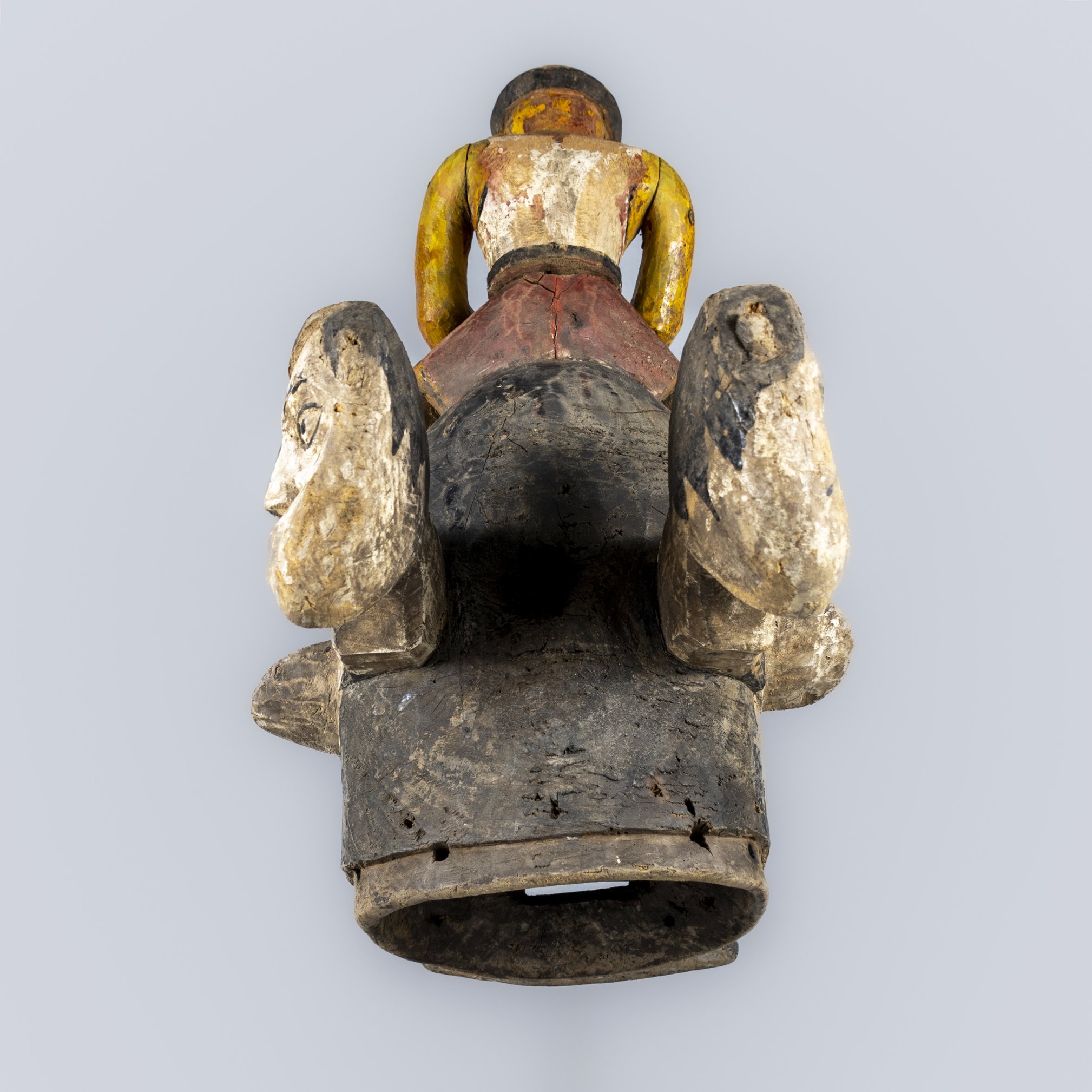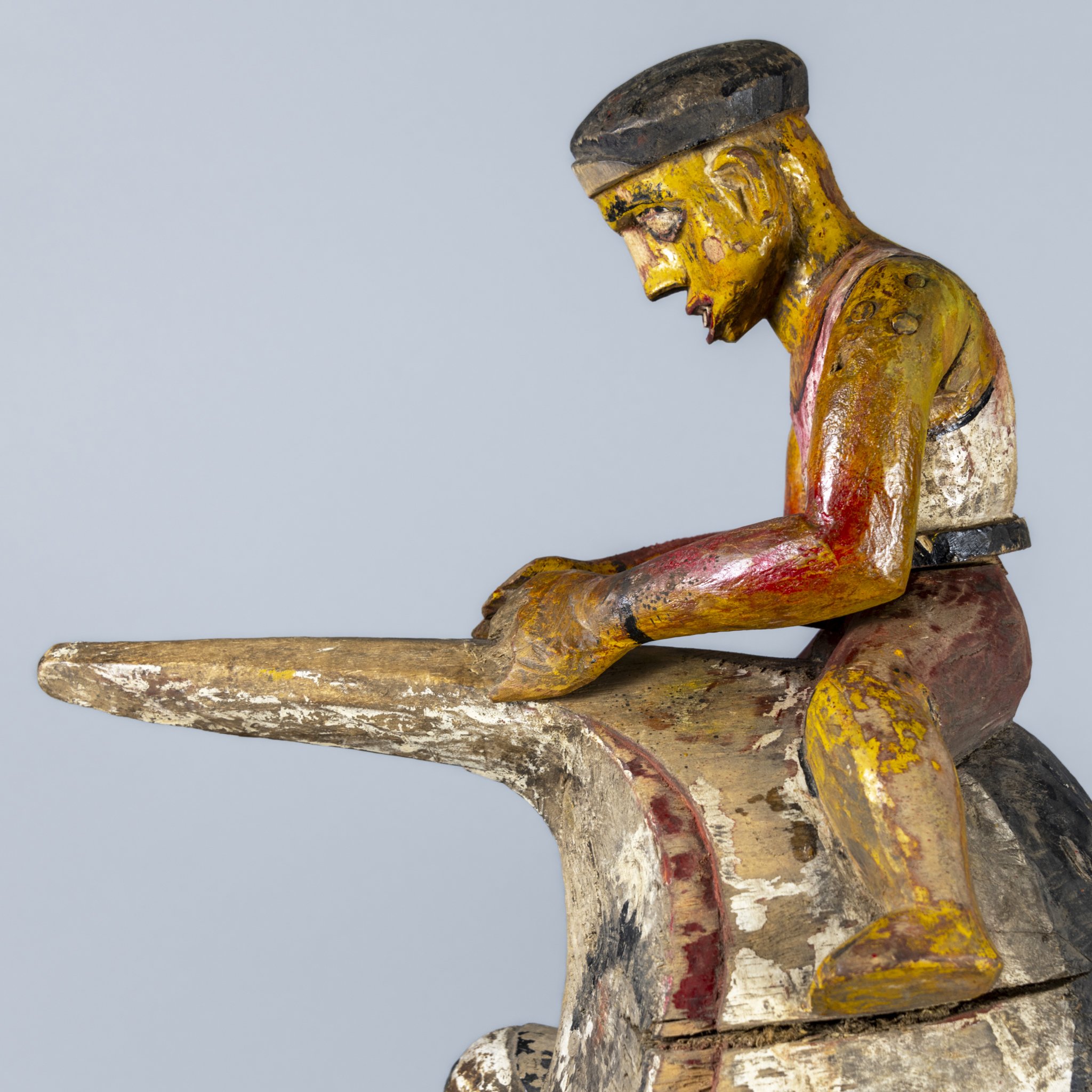













Igbo Ogbodo Enyi (Elephant Spirit) headdress, Nigeria
18" tall x 24" long x 11" wide
wood, metal, pigment
ex Jim and Kit Horne Collection
ex Hamill Gallery, Boston
* professional restoration to the figure’s left arm
* sold with custom mount
A dynamic and unusual example which has the only depiction of a person on top that I’ve ever come across.
I originally saw this headdress in-person in Hamill Gallery’s “Animalia” exhibition in 2008 and I really loved it and it stuck in my mind for years afterwards. It was sold soon after that and years later I was able to acquire it from the couple that had purchased it.
I’ve seen a couple of examples with full figures carved on the back, but I haven’t seen one with a figure carved on the top like this. The figure on the top has a pretty aggressive facial expression and reminds me of mythological whale riders of the Māori, but here he is an elephant rider. The figure’s left arm was broken and the lower piece was missing. I had it professionally restored and had a mount made for the piece. To me having both arms present, as was originally intended, makes the statement of the figure riding on what is the elephant’s trunk more powerful. The lower part of the figure is part of the larger carving of the headdress, and the upper part of the figure was carved separately and attached at the waist.
In Herbert M Skip Cole’s book “Igbo Arts: Community and Cosmos” it explains the heads on the back (ntepke) are found on the senior masks and they underscore their greater authority and superior spiritual capacity.
“The Izzi Igbo of Nigeria make use of a crest mask, or headdress, called ogbodo enyi, to cleanse each community of evil spirits and distructive elements, and are also used as agents for social control. Enyi meaning either 'elephant' or 'friend', and ogbodo meaning 'spirit', these masks are said to be reinterpretations of the elephant form juxtaposed with human elements. These headdresses, once described as harsh, violent and threathening spirits, are now danced by boys and men (and more recently, women) of various age-groups, during processions through the village, where older maskers are given gifts and in return, the dancers complete projects that benefit the community.” - IMO DARA
$2000 plus shipping
Click/Tap on any image below to bring up the image viewer.
INQUIRE
If you have questions, requests for high resolution photos, or would like to inquire about purchasing this object please use this form.


